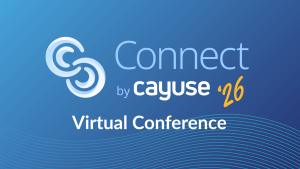Blog
5 Key Areas of Research Management
- Government
- Healthcare
- Higher Education
- Life Sciences
- Nonprofit
Research management is a broad field involving the coordination of numerous processes to move research efforts forward, from setting goals and obtaining approval to monitoring progress and ensuring compliance. For research administrators, it is vital to understand what this entails so they can manage projects effectively and make better decisions.
Below is an overview of the five major areas of research management and the ways administrators can address them to improve research outcomes.
1. Strategic planning
In research, strategic planning focuses on developing practical solutions to bring change and help organizations achieve their research goals. To be transformative, these strategic plans must be more than vague suggestions. Instead, they should be targeted and well-defined, expanding beyond the confines of daily operations to identify priorities and risks.
But managing your stakeholders’ interests can be challenging if you cannot balance their expectations with what is achievable. You must develop realistic timelines and communicate them throughout the organization. With a well-designed plan, you will be better positioned to create successful proposals and secure funding.
2. Project oversight
Research administrators must also monitor their projects and team members to evaluate their progress against the desired timelines. Project oversight facilitates this by offering a comprehensive review of operations to check compliance and identify areas of concern.
With active oversight, administrators can be more proactive and diligent, preparing for foreseeable and unforeseeable risks and addressing issues as they arise. This can reduce delays and wasted resources, saving time and money.
For such prompt handling, transparency and open collaboration are key. The proper tools must also be available for all levels of the research team.
3. Compliance and ethics
As research becomes more multidisciplinary and complex, adherence to regulatory boards and ethical committees is developing into one of the most challenging aspects of research management. Administrators must have a comprehensive understanding of numerous guidelines and protocols, including:
- Institutional Animal Care and Use Committee (IACUC) protocols for animal oversight
- Institutional review board (IRB) protocols for human ethics
- International Building Code (IBC) and National Institutes of Health (NIH) guidelines for biological materials and hazardous agents
Without practical knowledge of these standards, research administrators will likely see their projects become stuck in approval cycles, delaying studies for years and costing organizations thousands of dollars. Noncompliance can also lead to fines and legal issues.
Managing all these intricacies along with conflict of interest (COI) disclosures and animal research training records can be overwhelming and prone to errors. Therefore, it is critical to use smart solutions for overseeing projects, ensuring compliance, and shortening turnaround times.
4. Data management
The validity and reliability of research projects lie in their data, which is why data management is essential. Data management includes not only the way data is collected but also its storage, access, sharing, and analysis.
Traditional paper-based systems are inadequate for handling the demands of today’s complex research. Susceptible to human error and duplication, these legacy systems lack accessibility and accountability, making it difficult for teams to collaborate. With the progress research technology has made over the last decade, administrators should consider adopting digital solutions to automate and centralize their data management.
5. Reporting and intellectual property
Managing the intellectual property rights (IPR) of data and findings helps to protect their discovery through patents and copyrights. Moreover, it will define the parameters for publishing reports, which is critical for collaborative, international, and sponsored research.
Any confusion in this area opens organizations to litigation. This must be avoided at all costs not only to preserve the project but also to protect the institution’s reputation. Administrators must be well-versed in IPR laws and develop guidelines for reporting and disseminating their findings accordingly.
Improve research management with Cayuse
Given the scope of research management and its reliance on collaborative, multifunctional teams, administrators should consider integrating technology to provide support and reduce the administrative burden. At Cayuse, we promote research on a global scale, helping organizations make data-driven decisions to reach their goals. Our digital solutions, including our research compliance software, encompass all the key areas of research management — from oversight to compliance.
Cayuse can help you:
- Protect your research subjects, teams, and organization
- Collect and share data electronically
- Prepare, submit, and route research proposals for committee approval
- View real-time data for timely decision-making
- Save time by reducing errors and mitigating risks
- Enhance accountability, privacy, and security
- Increase satisfaction among administrators, sponsors, researchers, and regulators
To learn more about how our compliance solutions can address your research management needs, request information here and discover how we can improve your research administration.

